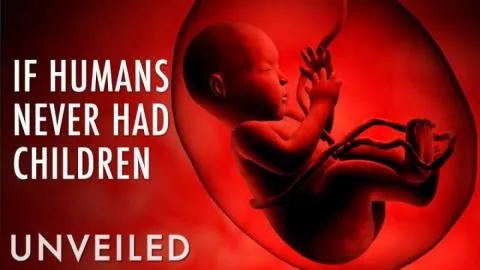What If Pregnancy Was Really Rare?

What If Pregnancy Was Really Rare?
Currently, our world’s population stands at approximately 7.7 billion - with the population having more than tripled in the last 100 years. Although birth rates have decreased dramatically, we’re still expected to top 10 billion this century. What would happen, however, if pregnancies became quite rare? What would be the impact on human life?
A reduced rate of pregnancies would significantly affect the world economy. The most direct result would be felt in industries that depend on childbirth. With fewer children around, the childcare industry would decline. As the population ages, the labor market would experience turmoil as people retire without being replaced, creating a crisis for labor intensive companies. As the saying goes though, every cloud has a silver lining. At least initially, those seeking employment would have higher bargaining power, and the problem of unequal wealth distribution might gradually reduce.
A dramatic reduction in birth rates could also alter how we value human life. In general, as a commodity becomes rarer, its value increases - and the same could be true of . . . well, us! We might see the government pass more legislation protecting human life, and even the abolition of the death penalty. The most valued lives, however, would be newborns. Governments might seek to reward pregnant women, and offer comprehensive financial support for children. Unfortunately though, the increased value of newborns would also attract the wrong kind of attention. Kidnapping and trafficking would become especially lucrative businesses, since those seeking children would pay any price to get one. Children could become highly guarded, and viewed as assets.
This could also change the social context of pregnancies. In many countries, teenage pregnancies are generally frowned upon. Pregnant teens are stigmatized, and some consider abortions or giving up their child for adoption. If pregnancies became extremely rare, however, we could expect a shift in moral perspective, on both teenage pregnancies, and probably also on abortion. We might also see an increase in casual and unprotected sex, since the risk of pregnancy currently acts as a deterrents. The result would probably be an increase in sexually transmitted diseases.
A decline in fertility would also impact our psychological and physical well-being. While there are negative psychological impacts of pregnancies such as postpartum depression, the confounding factors such as lack of support and stigma might be underlying causes. Pregnancy also has positive psychological impacts. For instance, pregnant women tend to adopt healthier living styles. For both men and women, the relationship with their children often acts as a motivating factor. With the decreased rate of pregnancies, would-be parents might feel increasingly unhappy and unfulfilled - a problem enhanced by the fact that more and more people, especially the elderly, would lead relatively isolated lives.
We might also have to reevaluate our stance toward human cloning. While scientists have successfully cloned other animal species, human cloning is a contentious issue. Without any other alternative however, scientists could be forced to disregard ethical opposition. This might mean that we could request a clone of ourselves to replace us or act as a companion. The existence of identical copies of people would pose considerable security concerns for modern criminology. Then again, scientists could also go another route: overcoming human mortality. This would mean extensive research to increase life expectancy and ways to maintain youthfulness.
Unfortunately, if all fails, and death rates become higher than birth rates, we could face the prospect of dying out as a species. At some point in this decline, the elderly would form the majority of the world’s population. In the long run, the human race would become extinct. As a result, other species would eventually take back human habitats for their own. In urban areas, vegetative cover would increase, followed by populations of herbivores and then carnivores. So, on the bright side we guess, as we faded out, other species would take our place. The last remainder of the human race would have to deal with a post-apocalyptic world, knowing full well that eventually there’d be no one left.
If pregnancies became extremely rare, our societies would be revolutionized across all domains. Economically, some industries would collapse, even as the demand for labor increased, with able-bodied people harder and harder to find. The impact would also be felt on social life, as we re-evaluated a range of ethical issues, including in scientific areas such as cloning and regenerative medicine. Humanity would have to adapt fast, but without scientific breakthroughs in key areas, we might also have to make peace with the fact that our time on Earth was coming to end.
Sign in
to access this feature